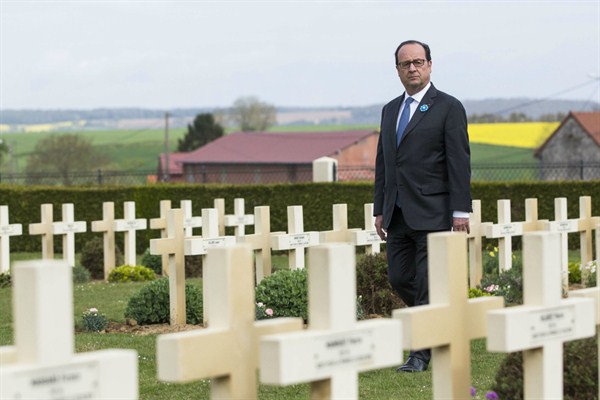Is Francois Hollande the most underrated statesman of his generation? The question might at first glance seem like a mean jibe. The French president is almost a forgotten man these days. His domestic approval ratings were so dire that he chose not to run for a second term.
French voters will start the two-round process of selecting his successor next weekend. The outcome is disturbingly unclear, and the nationalist Marine Le Pen could be the ultimate victor. Even if France picks a more palatable president, Hollande’s exit marks a greater loss for global diplomacy than most analysts recognize. France has managed to maintain an outsized role in multilateral diplomacy and conflict management on his watch. He departs just as his brand of Gallic globalism faces an existential crisis.
French diplomats, rather like their British counterparts, tend to believe that they have a unique calling to uphold the global system. But Paris has been distracted and constrained by domestic and European problems throughout Hollande’s tenure, ranging from the Greek debt crisis to repeated terrorist attacks. Germany has grown pre-eminent in European Union affairs. Yet, while sometimes chafing at Berlin’s rise, France has played a decisive part in global diplomacy, most obviously in engineering the Paris climate change deal.

